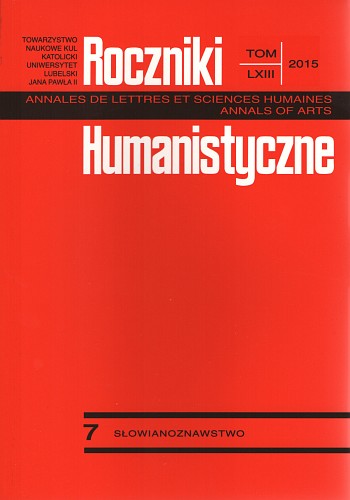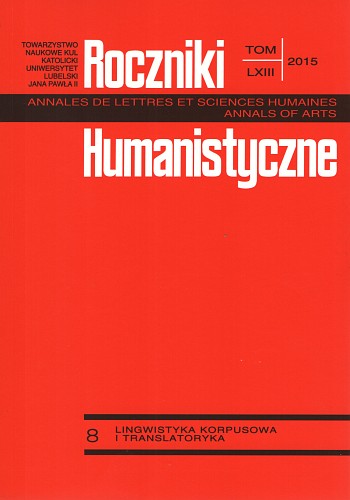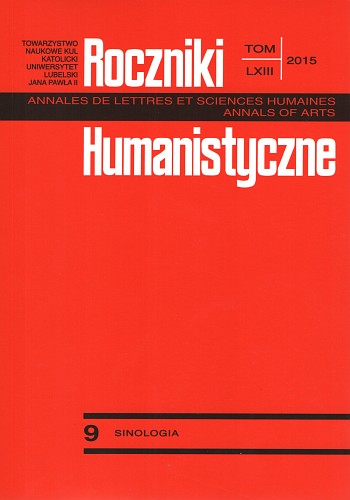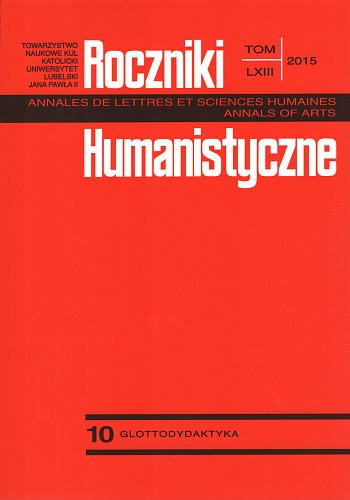



Keywords: Ancient Rome;Constitution;imperial constitutions;municipal statutes;res publica;
This article aims to analyse the notion of constitution in Ancient Rome. The word constitution occurs in many historical and legal studies to describe Roman political system. But there is no constitution in Rome in the present meaning of this word. Constitutio is used for the decisions of the Roman emperors. Some epigraphical documents seem however to contain constitutionnal norms. Besides, at the end of the Republic, the idea of constitution seems to appear slightly in the political thought.
More...
Keywords: constitution;history of France;Restoration;Third Republic;
This article aims to study the uses and “non-uses” of the word constitution in the institutional history of France in the 19th century: at the time of the Restoration of the Bourbon dynasty in 1814, after the fall of Napoleon and at the time of birth of the 3rd Republic.
More...
Keywords: constituent peoples;official languages;ethnicities;linguistic affiliations;linguistic identities;Croatian;Serbian;Bosnian;languages or languages denominations;linguistic claims;
This paper revives the need to rethink the language concepts (national, official and other), nation and state constitution by subjecting them to the study of (intractable) features created by the Bosnian cohabitation. The names imposed by the Dayton Agreement (1995) and referring to political entities as well as peoples and minorities concerned, such as Bosniak-Croat Federation / Muslim-Croat, Republika Srpska (Serb political entity of Bosnia and Herzegovina), Croats / Bosnian Croats, Serbs / Bosnian Serbs, Bosnians, Bosniaks / Muslims, Bosnian-Muslims, etc., create a broad area where intermingle and overlap language demands and multiethnic / multireligious realities.
More...
Keywords: definition;religious Constitutions;religious Institute;canon law;religious law;
The aim of this paper is to present a legal activity of the ecclesiastic Legislator in order to de-fine legal terms used in the Constitutions of chosen religious Institutes. The Author highlights the importance of this activity in the Roman law and its influence on the modern legal ordinations as civil law and common law. The Author also takes into consideration the single legal institutions and compares their meaning with the original Latin significance. The Author points out how important is to determine the proper meaning of a single legal term and suggests such criteria of scientifically research as necessity, opportunity and impossibility to define.
More...
Keywords: Second Vatican Council;Church;power;task;ministry;office;
The purpose of this article is interpretation of the notion of munus in the Constitution Lumen gentium and enclosed with this document the Preliminary Note of Explanation.The Latin noun munus is an ambiguous word. In the teaching of the Second Vatican Council this word is present up 255 times, whereof 55 times in the Constitution Lumen gentium. The Council Fathers used this term in the meaning of: “office”, “function”, “mission”, “service”, “task”, “obligation”, “ministry”. In many places the translations of constitution from Latin language into Polish language in 1968 and 2002 are different. This can cause not only problems of interpretation, but also doctrinal problems.
More...
Keywords: jurislinguistics;terminology;modal verbs;specialized translation;comparable corpora;parallel corpora;
The article contains a detailed analysis of the verbs garantir and assurer and their evivalents in Polish gwarantować, zapewniać i zabezpieczyć extracted from the normative texts, which are national constitutions and the constitution of the Catholic Church. As modal deontological verbs of assurance they are used in specialized texts. The study of the relationship between the type of a constitutional text and the choice of verbs of assurance in the language of the original indicates that both the syntactic structure and the meaning of those verbs are characteristic of a given type of text. The reflection over the choice of those verbs in translated texts leads to the conclusion that it is worthwhile to re-think the use of equivalents in the translated text according to the redaction style appropriate for a given normative text. Detailed illustrations of bilingual contexts of comparable texts as well as of parallel ones also aim at pointing out to computer linguistics specialists certain issues appearing during encoding and which arise from the transformation of whole phrases containing a verb of assurance during the translation process along with the consequences resulting from the choice of the de re or de dicto modality.
More...
Keywords: performative verb;deontic verb;syntagma;semantic class;normative text;
This article encompasses the semantic classification of performative verbs typical for the legal Polish and French languages and found in lexical constructions with Latin syntagmas of the prepositional type. Latinisms, treated as borrowed words, perform an adverbial function in both Polish and French. Their role is essential in communicating the meaning of the illocutionary act. A performative verb is frequently introduced by a deontic verb in legal normative texts, which proves there exists a modal element in a legal normative text.
More...



Keywords: Polish surnames;Chinese adaptations;epenthesis;anaptyxis;paragoge;apheresis;apocope;syncope;metathesis;phonetic substitutions;proper name pairs theory;
The submitted paper is a brief review of phonetic phenomena occurring in the Chinese adaptations of family names used by Polish people. Numerous instances of various linguistic strategies were found in the research material. These are: sound addition type of changes (anaptyxis, paragoge), sound reduction type of changes (apheresis, apocope, syncope), sound order changes (metathesis), as well as substitutions of the original sounds with their phonetically closest counterparts existing in the integrating language.The present deliberations pertain also to the onymic lexical units adaptation process occurring in the course of interlanguange contacts, as well as to a phenomenon of formation of numerous proper name pairs based upon a single anthroponym.The research material consists of 123 Polish surnames and their 325 substitution variants being used in the Chinese language.
More...
Keywords: Bamboo Paintings of the Yuan, Ming and Qing Dynasties;
Discovering bamboo was a breakthrough for painting in Yuan, Ming and Qing periods and making it a separate subject marked the beginning of literati painting. Painting, like calligraphy and poetry, were cultivated by the educated wenren people, especially for the educated, and in some cases for the artist’s entertainment. In ideal conditions, wenren did not sell their works. The painting of bamboo has received so much attention in China and so many artists of the highest competence have devoted their lives to the subject.
More...
Keywords: Confucius;Analects;personal model;junzi;xiao ren;ethos;
The following paper discusses concept of paradigmatic person junzi 君子 and ethos in Analects. Paradigmatic person junzi is an Confucian ideal man, responsible for maintaining dao in a family, social group and state by practicing a ren relations with other people hence helping them to build harmonious society. In the first part I shortly analyze what is ren and amiable virtues, in the second part I describe paradigmatic person’s most important features as well as junzi’s opposite xiao ren 小人 (small man) such as presented in Confucius’ Analects.
More...
Keywords: Confucius;Analects;sacred;heaven tian;natural order dao;what under heaven tianxia;the mandate of heaven tianming;ritual li;
The paper discusses the realm of sacred in Confucius’ Analects, on the basis of western sacred-profane dichotomy. It contains analysis of following concepts: heaven (tian), order of heaven (tianming), under heaven (tianxia), fate (ming), natural order (dao) and ritual (li). The author argues that some features of above-mentioned concepts could be described as sacred in spite of cultural differences and the general view that Confucius’ thought was mainly perceived as agnostic at best and that they constitute symbolic space that is sacred in a specific Confucian way. The feeling of being associated with what is sacred emerges from taking part in rituals and maintaining a natural order dao according to heaven’s instructions tianming.
More...
Keywords: French as a foreign language;online asynchronous communication;argumentative online discussion;individual communicative competence;media competence;
The present paper rests on the assumption that elaborating the determinants of media competence facilitate the conceptualization of the individual communicative competence development in accordance with formal requirements for teaching/learning at advanced L2 levels.The paper presents the chosen conclusions of my action-research project, whose major aim was to elaborate the determinants of constructive learning actions involving the selection and proper interpretation of media resources in French. These skills, inherent to media competence and necessary for the learner autonomy development, were trained in discussion tasks aimed at improving communicative skills and accomplishing cognitive goals connected with knowledge construction.
More...
Keywords: guillaumism;verb;mode;tense;aspect;French;
Gustave Guillaume’s theory has influenced the works of a large number of linguists. His influence reached academic literature, in which the determination approach as well as the time representation in the language undisputably bear his print. Marc Wilmet has summarized that demanding system and offers a consistent presentation of it to the present-day public.In his work Grammaire critique du français (2010), he presents, amongst others, a theory of the French verbal system of which we analyse, in this article, the strengths as well as the applicability for teaching / educational purposes.
More...
Keywords: text;enunciation;subjectivity;
The article aims to present different ways of approching to a text. A particular attention is put on subjective, emotional and valuating elements of scientific discourse and its appropriate interpretation by readers.
More...
Keywords: French for special purposes;specialised language;internship;European Studies;module;
The article describes the constantly changing needs of students learning a foreign language. In the past, teacherʼs job was to introduce general vocabulary or speaking in a foreign language, however today, because of the labour market, many students are forced to speak a specialised language even before completing their studies.What I mean are, for example, students of European Studies doing an internship in MEP ʼs offices in EU institutions, who should use a foreign language in specific professional situations. Therefore, their language classes should not limit themselves to learning only the general language, but also contain a module for vocabulary, structures that appear in the language of the European Union and give an opportunity to read examples of texts written using them.The article presents an idea of such module, goals that will be achieved using it and sample exercises that are included in it.
More...